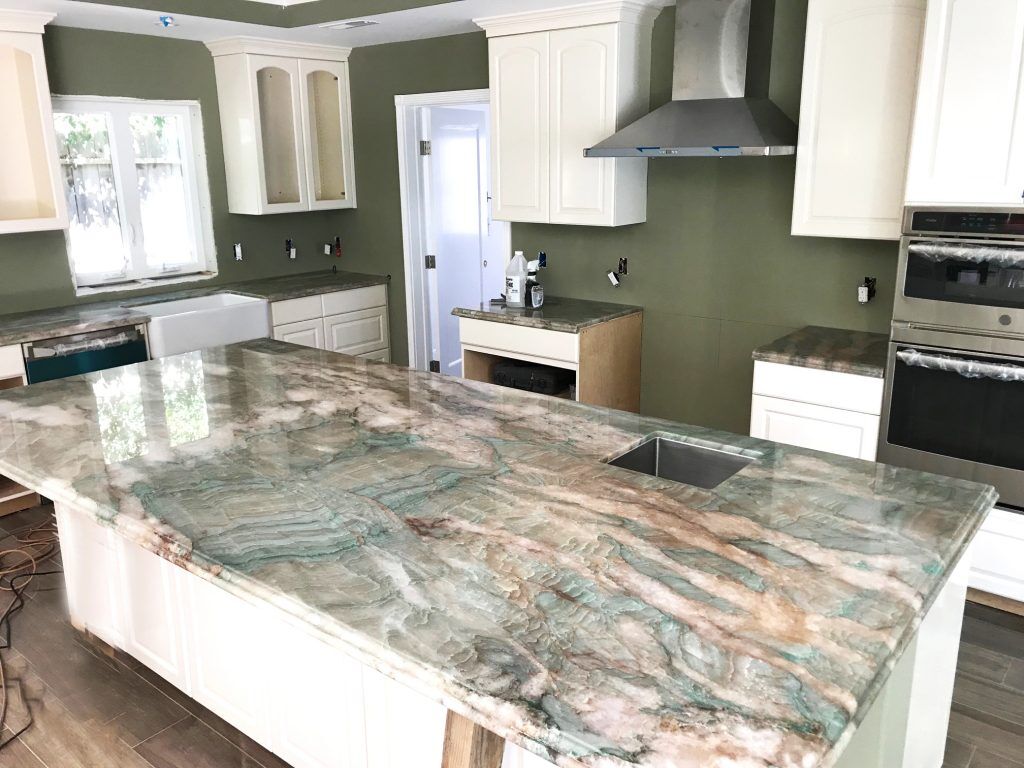What countertops to should you avoid? When it comes to countertops, the choices are vast, ranging from affordable options to luxurious designs. However, not all countertops are created equal, and some materials may not be worth the investment due to durability issues, maintenance needs, or overall quality. To help you make an informed decision for what countertops to should you avoid, here are countertop materials you should think twice about before choosing for your home.
1. Laminate Countertops
Why Avoid It?
- Prone to Damage: Laminate countertops are made from layers of plastic bonded to particleboard or MDF. While inexpensive, they are highly susceptible to scratches, burns, and peeling.
- Not Heat-Resistant: A hot pan can cause irreversible damage.
- Short Lifespan: Over time, the laminate surface may bubble, chip, or fade.
Better Alternatives: Quartz or solid surface materials offer durability and low maintenance for a modern, polished look.
2. Tile Countertops
Why Avoid It?
- Grout Maintenance: The grout lines between tiles can be difficult to clean and are prone to staining, cracking, and mold growth.
- Uneven Surface: Tiles create an uneven surface that can make certain kitchen tasks inconvenient.
- Lack of Seamlessness: The aesthetic appeal may be dated compared to other modern, seamless options.
Better Alternatives: Consider quartz slabs for a sleek and grout-free surface.
3. Butcher Block Countertops
Why Avoid It?
- High Maintenance: Butcher block requires regular oiling to prevent cracking, warping, and drying out.
- Bacterial Growth: Wood is porous, making it more likely to harbor bacteria if not sealed and cleaned properly.
- Susceptible to Damage: It scratches and dents easily, which can ruin its appearance over time.
Better Alternatives: Opt for materials like quartz or concrete for a similar rustic feel without the upkeep.
4. Painted or DIY Epoxy Countertops
Why Avoid It?
- Inconsistent Results: DIY methods often result in uneven finishes, bubbles, or streaks.
- Not Durable: Paint or epoxy coatings can chip, peel, and wear away over time, especially in high-traffic areas.
- Difficult Repairs: Once damaged, repairing these surfaces is often costly and time-consuming.
Better Alternatives: Engineered stone or solid surface materials provide professional quality and a lasting finish.
5. Recycled Glass Countertops
Why Avoid It?
- Fragile: While beautiful, recycled glass countertops can chip or crack if subjected to heavy impacts.
- High Maintenance: They are prone to scratches and may show wear and tear over time.
- Cost vs. Durability: These countertops are often expensive but don’t offer the durability expected for the price.
Better Alternatives: Consider quartz with a similar aesthetic but far superior durability.
6. Stainless Steel Countertops
Why Avoid It?
- Easily Scratched: Stainless steel shows scratches, fingerprints, and smudges easily, requiring constant cleaning.
- Industrial Look: While suitable for professional kitchens, stainless steel can feel too cold or impersonal for a home.
- Noisy Surface: Dropping utensils or cookware can create unpleasant noise due to the metal’s properties.
Better Alternatives: For a modern look, explore polished concrete or quartz with metallic finishes.
7. Cheap Solid Surfaces
Why Avoid It?
- Lack of Heat Resistance: Some budget-friendly solid surface countertops can warp or discolor from heat exposure.
- Prone to Scratches: They often don’t have the durability to withstand knives or heavy cookware.
- Staining Issues: Cheaper options may stain easily and require frequent polishing to maintain their appearance.
Better Alternatives: Invest in high-quality solid surfaces or quartz for long-lasting performance.
Final Thoughts
When choosing what countertops to should you avoid, it’s essential to balance budget, aesthetics, and durability. While cost-effective options may seem appealing, they often lead to higher expenses in the long run due to frequent repairs or replacements. Investing in quality materials will save you time, money, and stress, ensuring your countertops look beautiful and perform well for years to come.
Need help selecting the perfect countertop for your space? Reach out for expert advice tailored to your needs!

